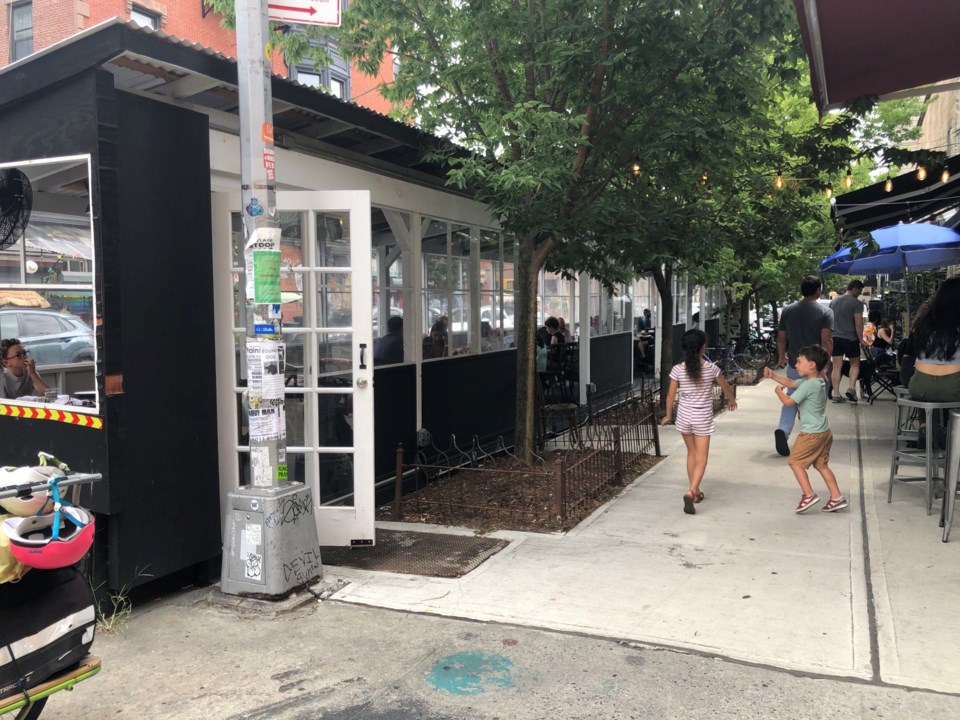Mayor Eric Adams said the Open Restaurants program--which allowed restaurants to build outdoor seating in streets and on sidewalks citywide in the wake of COVID--is going to become a permanent part of the city's streetscape.
For both restaurants and its patrons, the dining sheds were a welcomed new addition. Not only did they provide a much-needed financial boost to restaurant owners, following major losses due to the COVID lockdown; also they offered pandemic-weary residents an opportunity to be outdoors, to socialize and dine safely at their favorite watering holes.
But now that the pandemic is over and circumstances have changed, so have some people's opinions around whether the program should continue.
For example, a cohort of block associations and neighborhood groups from across the city have organized in opposition to the permanent plan and some Brooklyn residents contributed to a lawsuit against the city to repeal the law that set the stage for the current Open Restaurant program before a permanent version takes place.
Adams announced his plans for a permanent Open Restaurant program in front of an abandoned shed in Midtown last Thursday, adding that deserted sheds would be torn down after due process and fair warning. After the announcement, he put on his hard hat and helped a demolition crew take the shed down.
So far, the city has removed 25 unused sheds and is currently evaluating 37 more for removal, Adams said.
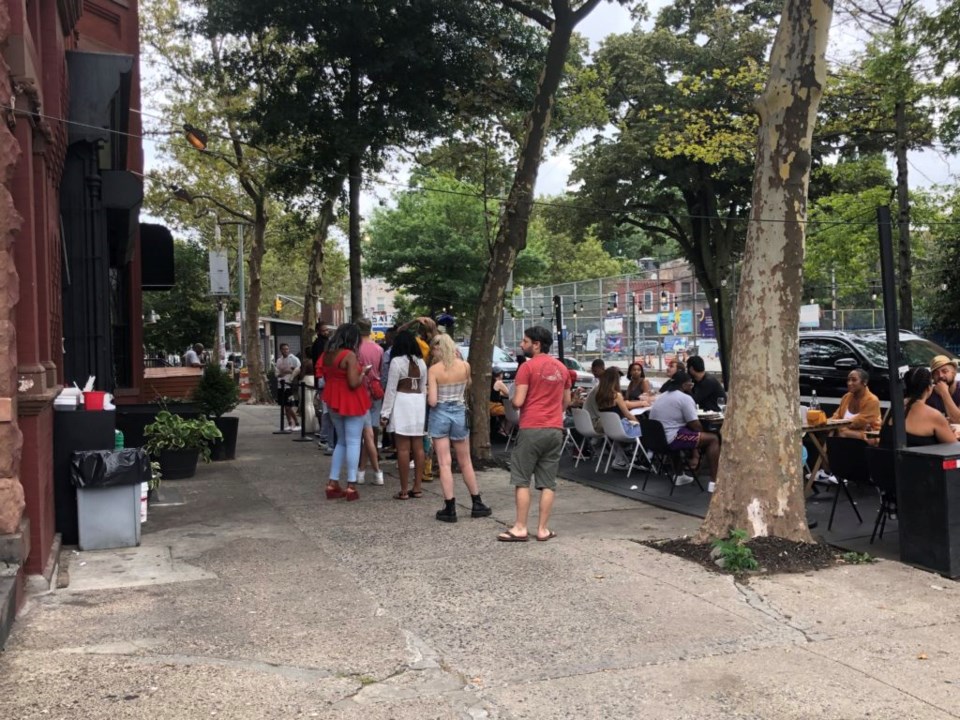
“These deserted dining sheds have become eyesores for neighbors and havens for rats, and we are going to tear them down," Adams said.
"And, with this initiative, we are also taking the essential step towards a permanent Open Restaurants program that all New Yorkers can be proud of every day."
The New Program
The Open Restaurants program began as an emergency executive order to keep eateries open during the pandemic. Now that other emergency executive orders have ended, Adams is working to create a permanent Open Restaurants program by changing the laws that regulate outdoor dining in non-emergency conditions.
If all the legal changes are successfully made in the next few months, the program could begin accepting applications from restaurants as soon as this Winter.
The proposed program will be enforced by the Department of Transportation, instead of the Department of Consumer and Worker Protection, which oversaw the sidewalk cafe program prior to the emergency order that allowed outdoor dining citywide.
The permanent program will have clearer design guidelines and will be more strictly enforced, Adams said. Under the new program, restaurants would require a license agreement for sidewalk and roadway seating.
The guidelines would also regulate noise levels, outdoor heaters, structural design and ensure 8 feet of sidewalk room for pedestrians, Adams said. The rules will also mandate city elements, like fire hydrants, signs, and bike and bus lanes remain safely accessible.
"I want to say it loud and clear: Outdoor dining is here to stay,” Adams said.
Robert Camacho, the chairperson of Brooklyn's Community Board 4 which represents Bushwick, said that he was against the dining structures because of the way the rats nested below the raised platforms and for the party noises he hears while he's trying to sleep.
"If they want to take chairs and umbrellas out front, and then put them away at night, on their side of the property line on the sidewalk, we don't mind," Camacho, who has been a homeowner in Bushwick for 45 years, said. He is one of the plaintiffs suing the city over the program.
"I was literally shoved into a 4-foot, A-frame sign with my baby stroller on Bedford Avenue because there were too many people passing and the restaurant had sidewalk seating along the wall, on the sidewalk next to curb and a shed," Shannon Phipps, a longtime Williamsburg resident, said. Phipps is another one of the plaintiffs suing the city over the program.
In his August 18 speech, Adams said the lawsuit is slowing down the process of making the program more heavily regulated and enforced.
"We want also to improve enforcement so that restaurants are as successful as possible," Adams said. "New Yorkers have a lot of different opinions, and we understand that. And their lawsuit against the city is actually slowing the process of making the program permanent.”
Word on the Street
BK Reader hit the streets of Crown Heights, Bed-Stuy and Bushwick to see what pedestrians think about the program and its upcoming changes.
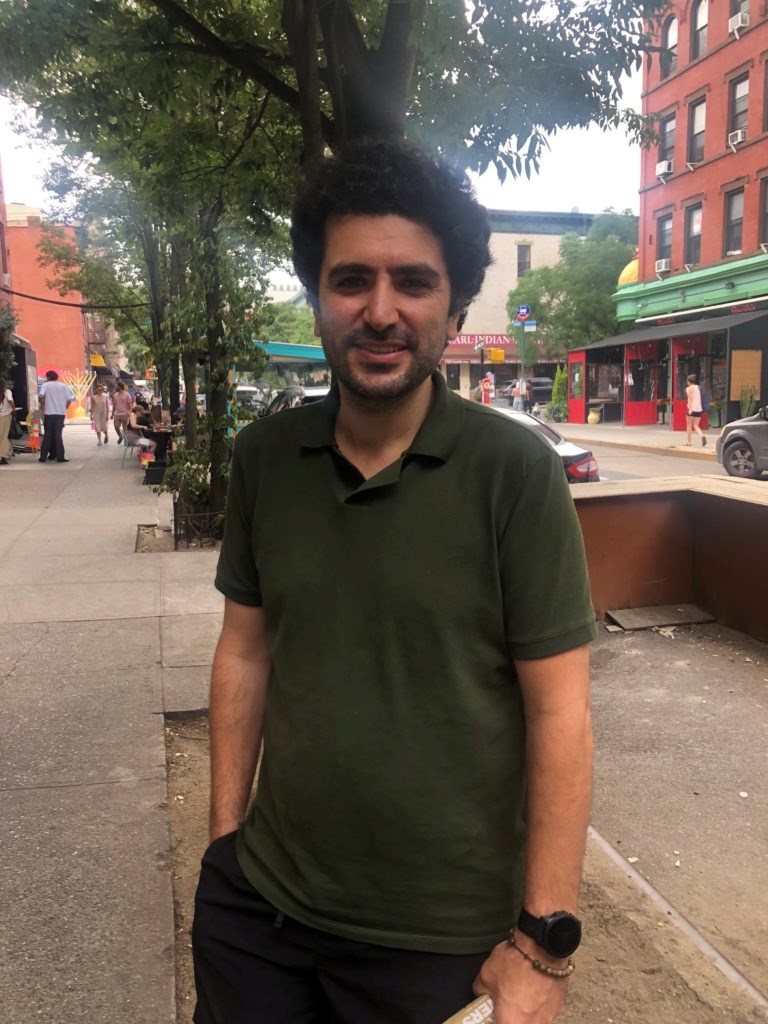
"The sheds are great—they are maybe one of the few good things that came out of the pandemic," Mazdak Jafaran, a Crown Heights local said. "The sheds add to the livelihood of our city and enhance the quality of the urban environment."
"I like it, I think it adds to the community as opposed to having cars parked in its place," Lenay Johnson, who lives in Bushwick, said about the sheds. "The program being extended as a permanent thing is great news. When our local businesses survive it makes the community better."
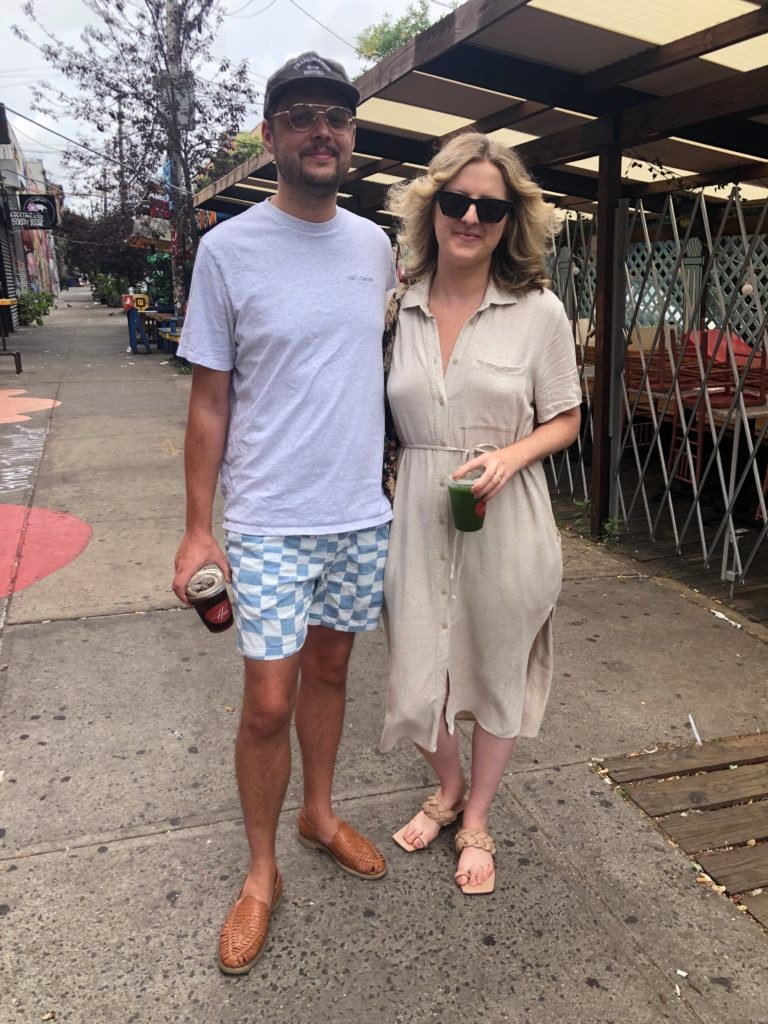
"It's more relaxing to be sitting outside," Keith Terry said. Terry has lived in Bed-Stuy for 35 years. "I never had a bad experience dining outside here. It's all been good, and it doesn't affect my driving or parking at all either."
For some, they were in favor of some version of the outdoor dining program, as long as rats and trash were properly mitigated and other environmental factors were reassessed.
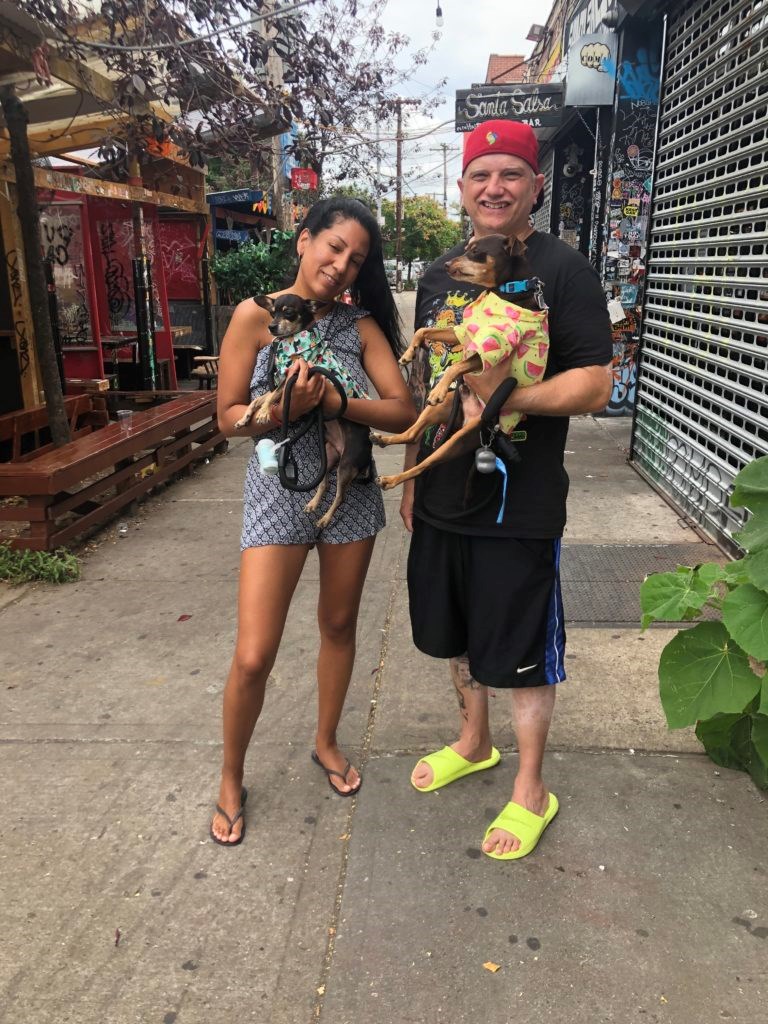
"I do think there are some things that could be done better," Mark Johnson, who lives in Bushwick, said. "One of the restaurants nearby ends up becoming kind of a rat-infested, nasty spot. There is always a pile of trash with rats running around over there."
"I was sitting outside at a restaurant on Irving, and I saw rats run underneath the platform of the shed we were sitting at," Phil, who lives in Bushwick, said. "If you're going to do it, make sure it's a clean structure that's maintained."
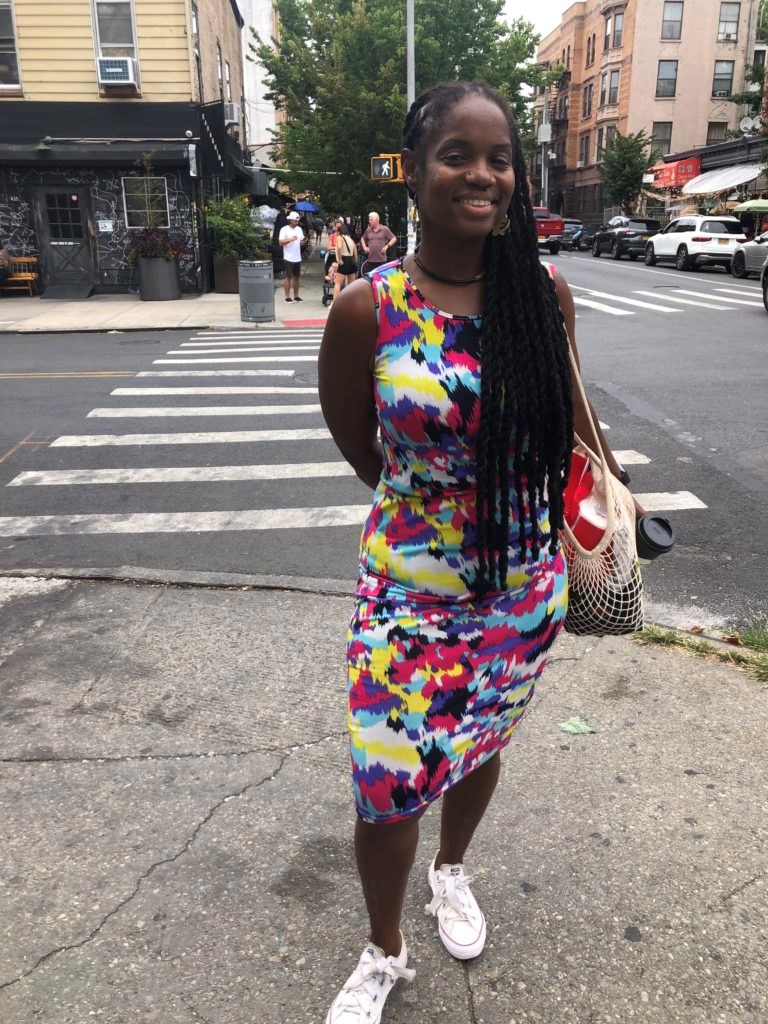
"There's a combination of things that needs to be re-assessed," said Nadine Meyers, who has lived in the Bed-Stuy area for 10 years
"I'm a cyclist, and in some of the places where the bike lanes are, it's very difficult to maneuver, and even if I ride on a street that doesn't have a bike lane, it's just hard. This program should be seasonal, and only open in spring and summer."
For more information regarding the permanent Open Restaurants program, click here. To notify authorities about abandoned sheds, call 311.

